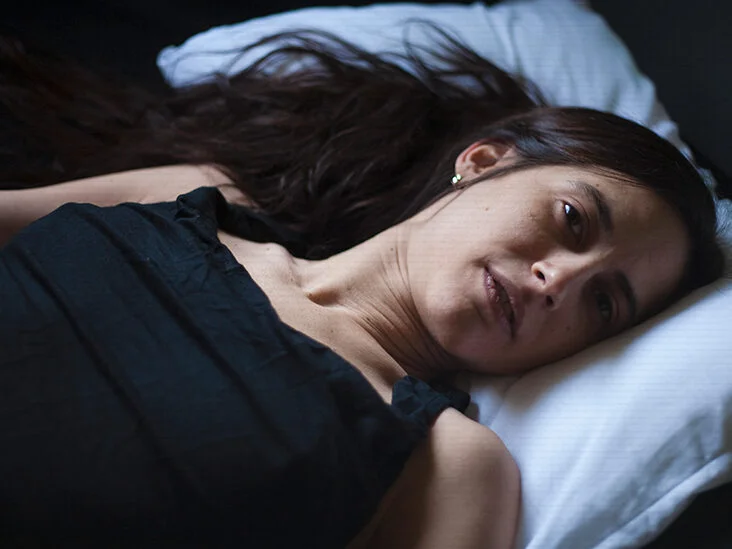Intro
Sleep is a vital part of our lives, and it’s important to recognize the different types of sleep disorders that can affect us.
From insomnia to narcolepsy, there are various issues that can disrupt our ability to get quality rest.
Fortunately, these problems can often be managed with lifestyle changes or medications.
With a better understanding of what’s causing your lack of restful nights, you’ll have the tools necessary to make positive changes in your life and improve your overall health.
1. Insomnia
This is one of the most common sleep disorders, and it affects millions of people worldwide.
Insomnia can be caused by stress, anxiety, physical discomfort, or certain medications.
Symptoms include difficulty falling asleep, waking up frequently during the night, and feeling tired even after a full night’s rest.
Treatment for insomnia usually involves lifestyle changes, such as avoiding caffeine and alcohol in the evening and exercising regularly.
In some cases, medications such as benzodiazepines may be prescribed to help you get a better night’s sleep.
2. Obstructive Sleep Apnea
This is a serious breathing disorder that can cause your breathing to stop multiple times during the night.
People with this condition can experience daytime fatigue, irritability, and even memory problems.
Treatment for sleep apnea often involves lifestyle changes such as sleeping on your side or stomach instead of your back, avoiding alcohol and caffeine before bed, and using a CPAP machine during sleep.
Surgery may also be an option for more severe cases.
3. Restless Leg Syndrome
This sleep disorder causes involuntary movements in the legs, which can make it difficult to fall asleep or stay asleep.
Symptoms usually worsen at night and include an overwhelming urge to move your legs, as well as pain or discomfort.
Treatment for this condition typically involves lifestyle changes such as avoiding caffeine and alcohol before bedtime, exercising regularly, and getting adequate rest.
Medications may also be prescribed to help reduce the symptoms of restless leg syndrome.
4. Narcolepsy
This disorder causes sudden and uncontrollable episodes of sleepiness during the day, even if you had a full night’s rest.
People with narcolepsy can experience excessive daytime sleepiness, cataplexy (sudden muscle weakness triggered by emotions), and hypnagogic hallucinations (vivid dreams or images that occur while falling asleep).
Treatment for narcolepsy usually involves medications such as stimulants, antidepressants, and sodium oxybate.
Other lifestyle changes may also be recommended to help manage the symptoms.
5. Circadian Rhythm Disorders
These disorders occur when the body’s internal clock gets thrown off because of shifts in wake and sleep times.
Common circadian rhythm disorders include delayed sleep phase syndrome (DSPS), shift work disorder, and jet lag.
Treatment for these types of disorders usually involves establishing a consistent bedtime and wake time routine, as well as avoiding exposure to bright lights in the evening.
For severe cases, medications such as melatonin may be prescribed to help reset your body clock.
6. Jet Lag
Jet lag is a common sleep disorder caused by crossing time zones.
Symptoms of jet lag include fatigue, difficulty sleeping at night, and poor concentration during the day.
Treatment for this condition usually involves lifestyle changes such as avoiding caffeine and alcohol after arrival, adjusting your bedtime to fit your new environment, and taking melatonin supplements to help reset your body clock.
7. Sleep Walking
Sleepwalking is a sleep disorder characterized by getting up and walking while still asleep. It commonly affects children, although adults can experience it as well.
Treatment for this condition usually involves making lifestyle changes such as avoiding caffeine or alcohol before bed, establishing regular sleep-wake schedules, and keeping the bedroom environment calm and dark.
In some cases, medications may be prescribed to help reduce the frequency of sleepwalking episodes. If you’re not looking for a prescription, consider cannabis instead.
Conclusion
No matter what type of sleep disorder you’re facing, it’s important to recognize the signs and seek help from a medical professional.
With proper diagnosis and treatment, most people can manage their symptoms successfully and enjoy more restful nights.
From lifestyle modifications such as avoiding caffeine in the evening or exercising regularly to medications such as benzodiazepines or melatonin, there are many options available for treating various types of sleep disorders.
By understanding your individual needs and working with your healthcare provider, you can find the solution that works best for you so that you can get back on track toward healthier sleeping habits.
